Top 10 Free Open-source Laboratory Management Systems (LIMS) for Windows, Linux and Mac OS-X
Laboratory information management systems ( LIMS ) are software which handle laboratory workflow, managing records, inventory, users and reporting.
Table of Content
Note: This article is an Evergreen article. It will receive continues update about the listed applications. You can save it and return to it as a updated resource.
Laboratory information management systems ( LIMS ) are software which handle laboratory workflow, managing records, inventory, users and reporting. LIMS solutions had been around for years as commercial solutions, but they had always limited when it comes to open source. Limited as they are they provide enterprise grade features to compete with the commercial highly cost LIMS with more features like modularity, integration ready and more developer friendly options.
Open-source Hospital Information systems and LIMS
Most of the open source HIS do have laboratory management module as built-in feature, however some hospitals laboratories may require specific LIMS solution to manage specific laboratory experiments. Here is a list of open source hospital information systems with laboratory modules we have covered.
Things to consider using open source LIMS:
Development status
Is it in active development or not? Some usable LIMS has not been updated since years.
Security
Did the developers consider adding security notice and security measures to ensure the security of the system.
Mobile and tablet ready
Almost all the open source LIMS are web-based solutions, though it is critical to understand is it ready to work from mobile browser with responsive design or not?
Developer friendly
RESTful API and developer oriented documentation are necessity if there is a plan for integration or extending the features of the LIMS.
Upgrades
Does the LIMS repositories get updates frequently to fix bugs and security issues?
Community and support
Is the LIMS in question is community powered/ supported or not?
The main power of open-source solutions, is ommunity driven development which ensures the project continues and expands to cover the expanding needs of the users.
1- Bika LIMS
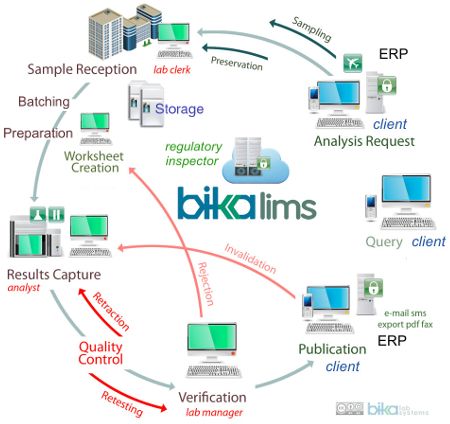
Bika LIMS is a free open-source laboratory information management system, Its the most popular open source LIMS as well as the oldest and active one so far. Bika LIMS has different derivatives including Bika Health which is aiming for healthcare laboratory settings, Bika Water, Bika Cannabis LIMS, and Bika Interlab. Bika LIMS has been used by labs around the world and getting more users as extending its community further with more experienced users' day after day.
- Platforms : Server Linux is preferred, Client : browser for Linux, Windows and Mac OSX
- Development status : active
- Code : Python Zope/ Plone CMS
- License : GPL
- Snap Review
- Website , Download, Demo
2- Open LIMS
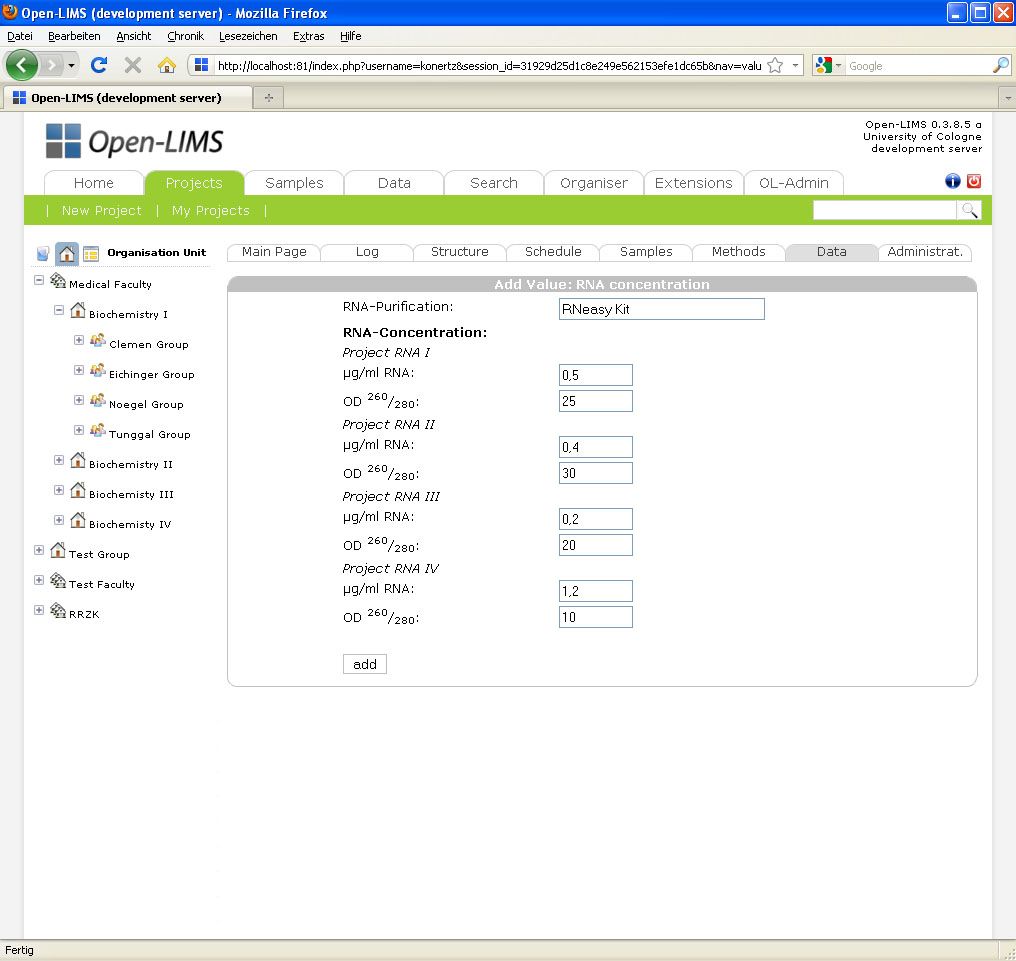
Open LIMS is an open source web-based laboratory management system. Though the project has not been updated since 2016 for the website and 2015 for the code base and listed as Alpha since it's registered 2010, It's getting weekly downloads by users all over the world. Open LIMS supports extensions, with project management and extensions support.
- Platform : Server : Linux, Client Web browsers (Windows, Linux, Mac OSX)
- Development status : Alpha (has not been updated since 2015)
- Code : developed using PHP and PostgreSQL
- License : GPLv3.0
- OpenLIMS website , Download
3- Senaite: self-hosted LIMS
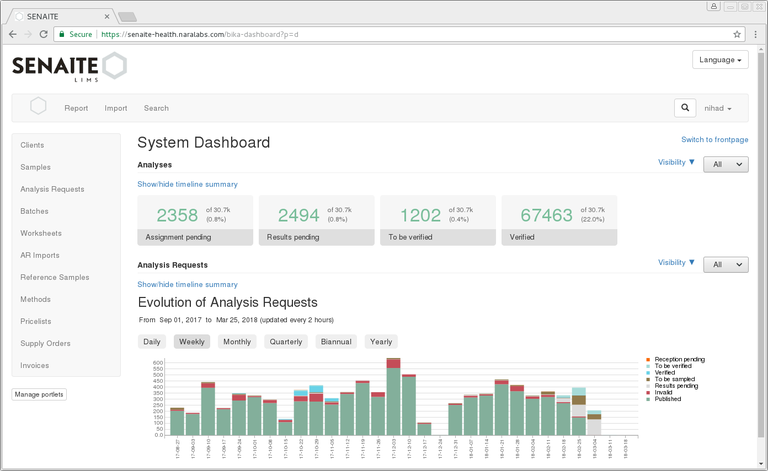
Senaite is a free web-based open source LIMS, Even though it's based on old legacy technology but it's still upgradable as the technology itself is still upgraded, used since the early 2000s ( Plone CMS ). Senaite has set of features as other LIMS though it gave more control to developers in terms of Modularity and RESTful JSON API.
- Platform > Server : Linux, Client Web browser ( Linux, Windows, Mac OSX )
- Development Status : active
- Code : Python Zope/ Plone CMS
- License : GPLv2
- Senaite Website
- For full technical features
4- eLabFTW
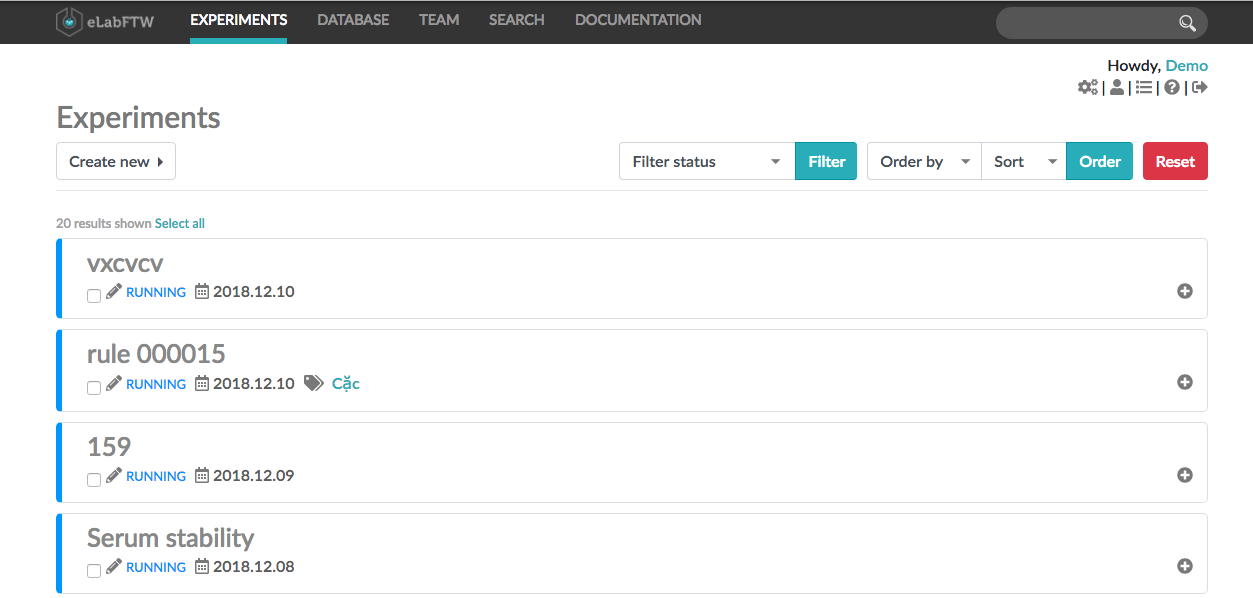
eLabFTW is a free open source web-based LIMS. eLabFTW is focusing on internationalization with support of growing community of developers and advanced users. The user-interface is responsive for mobile and tablet devices. eLabFTW has set of usable features we didn't come a cross of the other FOSS LIMS as file manager, molecules drawing, SAML2 authentication, inventory management and scheduler. eLabFTW developers has provided REST API for developers.
- Platforms => Server: Linux, Client : Web Browsers (Linux, macOS, Windows), Responsive design for mobile/ tablet browsers
- Development status : Active
- Code : PHP & MySQL
- License : AGPL
- eLabFTW website
5- MetaLIMS: self-hosted PHP based LIMS
MetaLIMS i a web-based open-source laboratory management system built for genomic labs. MetaLIMS developers provide full documentation for setup and usage.

- Platforms => Server: Linux, Client : Web Browsers ( Linux, MacOSX, Windows ), Responsive design for mobile/ tablet browsers
- Development status : active
- Code : PHP, MySQL
- License : GPLv3
- MetaLIMS website/ download
6- Clover
Open source web-based LIMS designed for biology labs with primary focus on plant biology labs. Clover features include : experiments management, inventory management, users management and reporting. Clover uses PHP5 not PHP7.
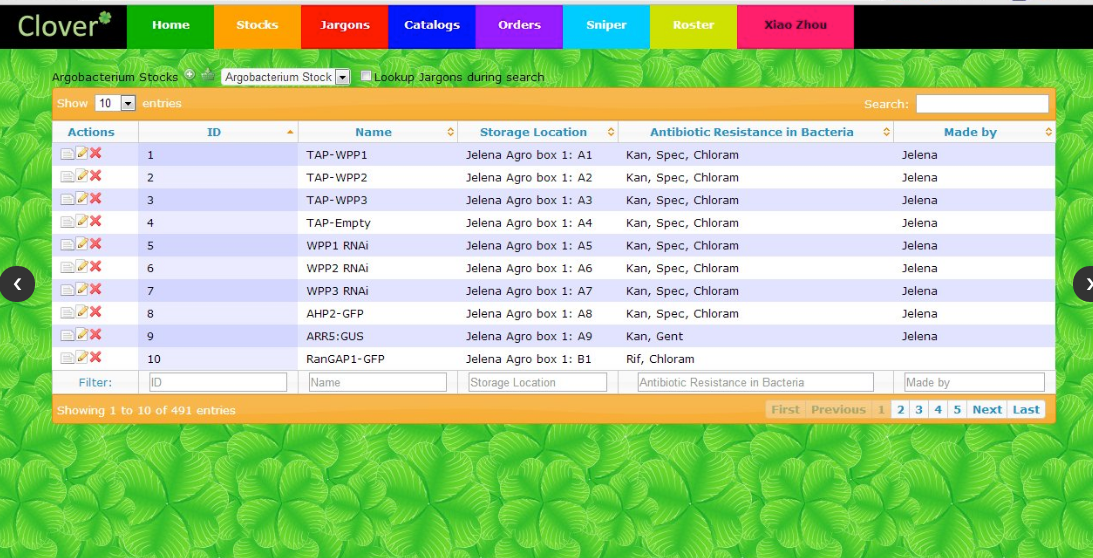
- Platforms : Server:Linux, Client: Web browser (Linux, Windows, macOS )
- Development status: stable (last update 2017)
- Code : PHP, MySQL
- License : GPL
- Clover Website, Download
7- Baobab LIMS
Baobab LIMS is a community driven open-source Laboratory Information Management System (LIMS), with primary focus on managing human biospecimens. Baobab LIMS is modular LIMS with developer friendly features allowing developers to build their own modules and use with ease.
- Platform : Server : Linux, Client : Web browser ( Windows, MacOSX, Linux )
- Development status: active
- Code : Python Zope/ Plone CMS
- License : GPLv2
- BoababLIMS Website
8- ERPNext : Laboratory Module
ERPNext is a new generation open-source enterprise resources planning (ERP) solution, with ERPNext Healthcare sector apps there is full-featured laboratory management solution integrated with other modules as inventory management, reporting and communication modules.
- Development status: active
- Platforms :Server: Linux, Client: web browser (Linux, Windows, Mac OSX). Mobile & tablets browsers with responsive design and mobile phone applications for Android and iOS
- Review : ERPNext as open-source development platform for healthcare apps
- Code : Python, MySQL, NodeJS
- License : GPLv3
- ERPNext Website
9- GNU LIMS / Occhiolino: Cross-platform with desktop clients (Windows, Linux and Mac OSX)
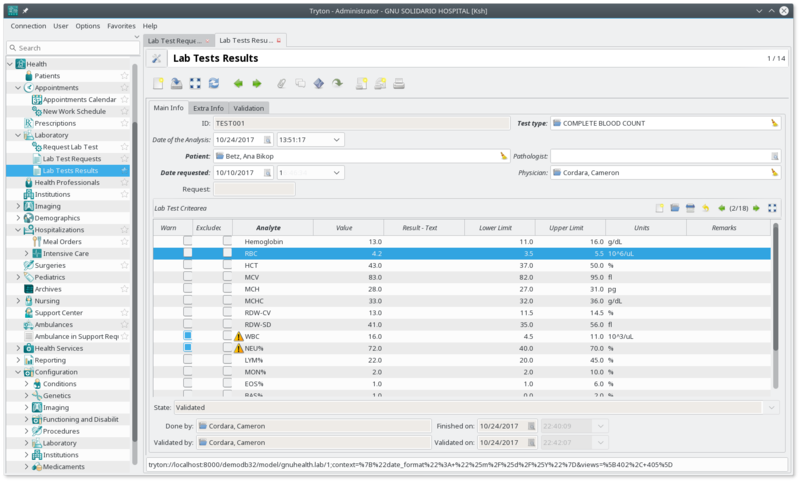
GNU LIMS, also known as Occhiolino is a yet another open-source laboratory information management system (LIMS), aiming for healthcare laboratories as its fully compatible with GNU-Health with complete workflow process control integration.
GNU LIMS has been design to cover all aspects for managing laboratories including accounting, billing and invoice management, stock management, batch import/ export, reporting, workflow management, human resources and more.
- Platform : Linux
- Development status : Active
- License : GPL
- GNU LIMS / Occhiolino Website
10- C4G BLIS ( Basic Laboratory Information System)
C4G Basic Laboratory Information System (BLIS) is an open-source system to track patients, specimens and laboratory results.
- Platform : Windows/ Linux and Mac OSX
- Development status : stable ( last update 2016 )
- BLIS Website , BLIS code
11 - OpenELIS
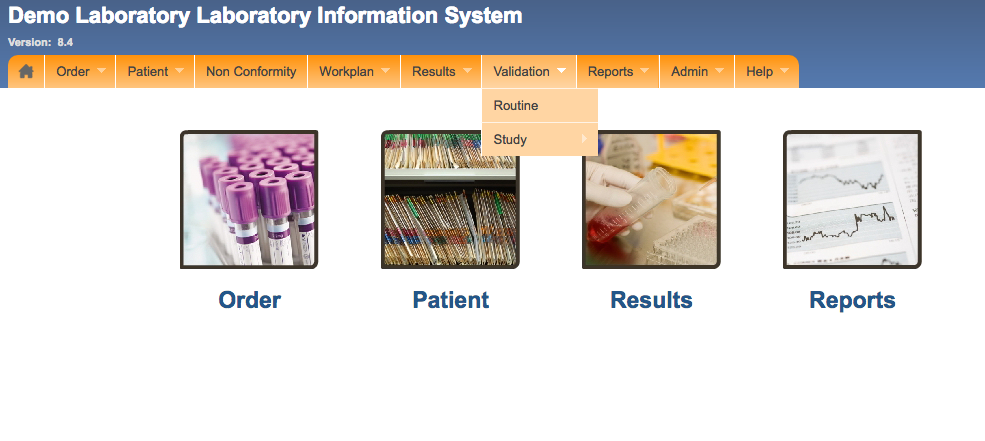
OpenELIS is an open-source web based LMIS, Its backed by OpenELIS organization and used in many laboratories around the world for years.
- Platform: Server:Linux, Client: Web browser
- Development status: Active
- Website
12- GNomEX: A Genomic LIMS and Data Repository
GNomEx is a web application with a Flash client user interface and a Java backend that runs on Apache Tomcat. MySQL is used for the database, although any modern RDBMS can be used.











